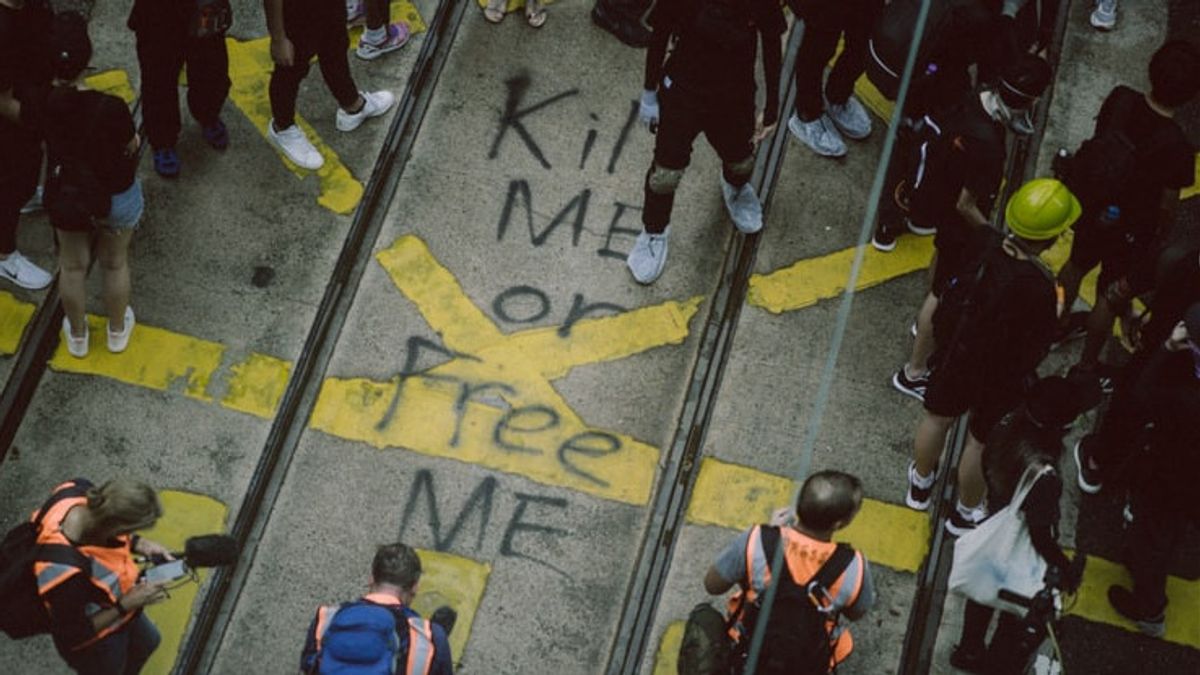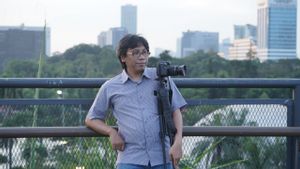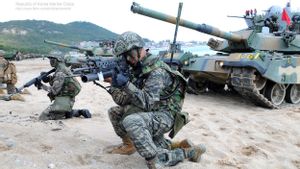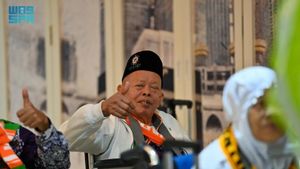JAKARTA - Today, Hong Kong faces a new reality after China's central government enacted the National Security Act. The enactment of the law coincides with the handover of Hong Kong from British rule to China in 1997. Dramatically, the enactment of the law will expand the powers of Chinese authorities to investigate, prosecute and punish dissidents.
Launching CNN, Wednesday, July 1, the National Security Law will punish people who seek secession, subversion, terrorism and collusion with foreign powers. People convicted of the crime could face life in prison.
Hong Kong police reported they had arrested a man for carrying an independence flag. The arrest was the first such arrest under the National Security Act.
The night before, police commanders were told during a training session that anyone seen raising an independence flag or singing independence would be arrested. In addition, the source said, anyone who searched for and found the independence flag would also be arrested.
Despite the large police force and threats of harsher sentences, hundreds of people came to the shopping district in Causeway Bay to stage a peaceful demonstration. They distributed flyers and waved posters. Riot police fired pepper spray into the crowd at one point and raised a purple flag warning protesters of violating the new law.
Prohibition of demonstrationsIn addition, July 1, is traditionally also a day of protest for demonstrators. But for the first time, the police did not give the protesters permission to hold peaceful demonstrations.
Speaking after the annual flag-raising ceremony, Hong Kong Chief Executive Carrie Lam said the National Security Law was "an important step towards ending the chaos and violence that has been occurring over the past few months."
"The national security law is the most important development in securing relations between China and the Hong Kong Special Administrative Region since the handover," he said, noting that criticism of the law was a "vicious attack."
The contents of the law, which consists of six chapters and 66 articles, were previously kept secret from the public until it was actually enforced. This is done so that the government, courts, police and authorities can reduce the mass anti-government protests that rocked Hong Kong since last year.
The National Security Act for Hong Kong has been heavily criticized by opposition lawmakers in Hong Kong, human rights groups and politicians around the world. Many fear it will be used to target political dissidents, activists, human rights lawyers and journalists amid the central government's continued crackdown on civil society under Chinese President Xi Jinping's rule.
Opponents say the enactment of this law marks the end of 'one country, two systems', a principle by which Hong Kong maintains limited democracy and civil liberties since being under Chinese control.
The English, Chinese, Japanese, Arabic, and French versions are automatically generated by the AI. So there may still be inaccuracies in translating, please always see Indonesian as our main language. (system supported by DigitalSiber.id)













